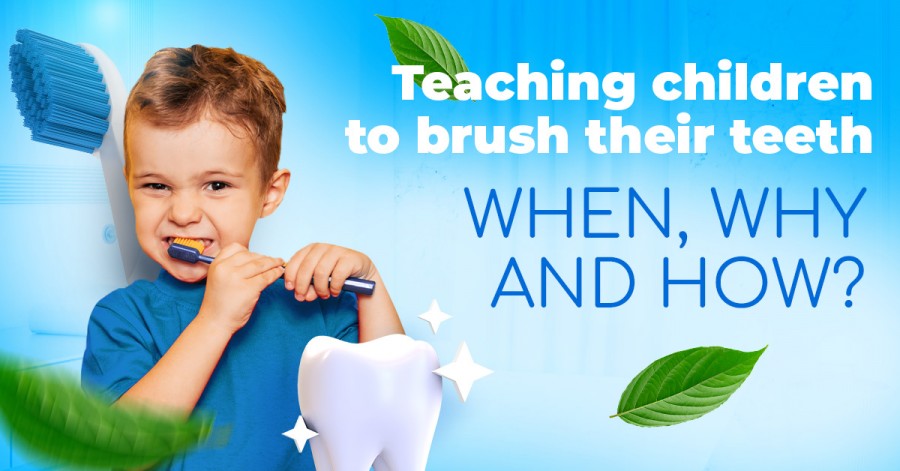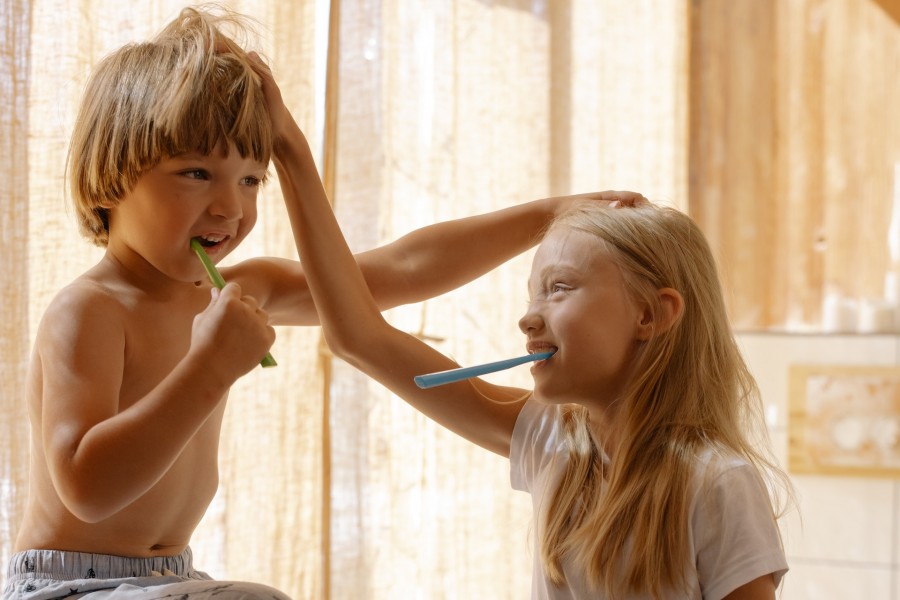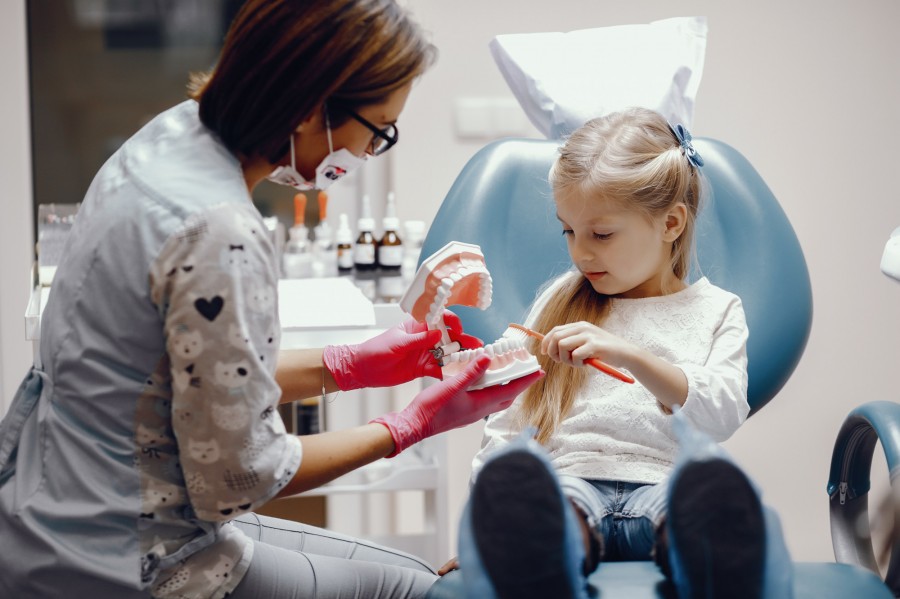Teaching children to brush their teeth: when, why and how?
Published 14 November 2022 at 23:21
Tickikids Blog Singapore > Digest > Teaching children to brush their teeth: when, why and how?

All children and adults know that sooner or later the baby teeth will be replaced by the molars. That's the nature of things - in order for larger teeth to emerge, smaller ones need to fall out.
This is why adults often do not teach their children oral hygiene when their baby teeth have not yet fallen out.
Is this a problem? Yes, it is! Such an approach can not only make it harder for children to learn to look after their teeth properly, but it can also cause a lot of problems for the molar teeth that are just starting to grow.
Apart from the embarrassment of having to give a fairy tooth with decay, improper dental care can lead to:
- toothache
- sore gums
- bad breath
- problems with speech development
In addition, damaged baby teeth can infect molars even before they have erupted. And if teeth have fallen out too early due to decay, it is necessary to prepare to wear a dental brace because the teeth will not grow properly.
So, as you can see, there are problems that are better prevented than solved. And we can help parents teach their children to brush their teeth with a few tricks
What is the best age to start?
There is no such thing as "too early" when it comes to teaching a child to brush their teeth. It is advisable to start when a baby gets its first tooth and you can use a piece of clean cloth on your finger to gently brush dentition. Also, you can use a silicone finger toothbrush, or a special toothbrush for babies - it has a small head and soft bristles that a baby can chew (so do not forget to replace it every three months). And if you let them hold the toothbrush, keep an eye on it, because they can fall forward and it's not going to end well.
Even if your little one is not fond of the idea of tooth brushing, there is no need to stress out - the most important thing is that you make it a part of their daily routine.
Why is it essential to start early?
Because baby teeth are much smaller than molar teeth, the enamel on them is much thinner and more susceptible to decay. In addition, as parents, we often put children at risk ourselves - for example, by giving access to snacks or bottles off-schedule. Kids do not clean their teeth after every meal, as a result, sugars, and food particles have a chance to make cavities.
And, speaking of snacks. It is almost impossible to overestimate the bad impact of sugars on oral health. In fact, the issue is so huge that the WHO called on countries to reduce sugars intake among adults and children.
Thus, it is essential to limit the amount of:
- Sugary drinks like juice
- Hard candies
- Popcorn, crackers, and chips
- Dried fruits
- Soda
- Citrus fruits with high acidity
All these drinks and snacks find their way around teeth, stick to them and provide the perfect environment for bacteria that cause cavities.

Image Credit: Pexels
It’s time to teach!
If you haven't been able to add dental care to a young child's daily routine, the task will be more difficult, but not impossible. With help of these tips and tricks, you will be able to lure even the most stubborn kid into bedtime brushing.
- Set an example. If parents show and explain to kids how they value the health of their teeth, little ones will copy them. You can make this morning/bedtime routine a great family bonding time.
- Pick the proper toothpaste. The American Dental Association has prepared a selection of reviews for toothpaste suitable for kids with plenty of options and tastes to choose from. Kids will definitely appreciate the taste of minty toothpaste, yet, bubblegum may change their opinion.
- Pick a toothbrush - and there is a plethora to choose from! Different colors, shapes, styles, and brushes that resemble kids’ favorite movie characters - you can choose anything that suits your taste and budget. Yet, find out at what age kids can use electric toothbrushes and follow that restriction!
- Use a timer. It is recommended to brush your teeth for no less than two minutes. So, a timer in a bathroom will help kids understand how long they have to do it. Or, you can replace it with a kid’s favorite song.
- Try the reward method. Sometimes just knowing that brushing is essential for health is not enough and kids need some encouragement to take care of their dental hygiene. For example, you can award them some extra game time.
- Science to the rescue! There are plenty of videos of science experiments on what will happen if a tooth will stay in contact with soda for too long. As they say, a picture is worth a thousand words!
We’ve just scratched the surface of the methods on how to teach your kid to brush their teeth and we will definitely return to this topic one day or another. Yet, here is, perhaps, the most important one:

Image Credit: Freepik
Find a great dentist
Adults are in most cases traumatized by the experience of childhood visits to the dentist. So we, like no other, understand why it is essential to find a dentist that will create the most welcoming and warm environment for a little one during the visit.
Naturally, dentist appointments today are not like those of 20 years ago, still, it is essential to make these visits regular (at least twice a year) with a doctor you and your kids can trust. Thus, every trip to the dentist will become a fun experience and your kids will never fear it. Add here a great reward for a cavity-free visit, and they will be looking forward to it!